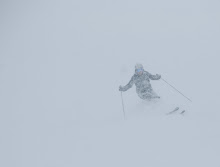I was playing chess with a friend of mine last week, and he asked "how did I learn to play chess?" I really don't remember. I do recall my father teaching me backgammon but it seems that I have always known how a knight moves versus a pawn, king or queen. My friend's interest in how I learned to play chess intrigued me, so I did some research on the internet about women and chess.
Men and boys do predominate the game. Only 1% of chess grandmasters are women and, according to the Chess Museum, "today only a small percentage of players in organized chess are women". Women have played chess since the 19th century and why few girls play and fewer women is the subject of much debate on the internet (which I will not go into here).
Chess is an ancient game. The most widely accepted theory is that chess appeared in India around 600 A.D., played in Persia in 700 A.D. and adopted in Arab culture a hundred years later. There are a lot of variants of chess. The chess that I play is sometimes called Western chess or International chess. Some of the language that we commonly use is derived from chess. The phrase "endgame" reflects the last part of a chess game when relatively few pieces remain on the board.
I associate chess with war tactics. My association has some roots in history. During the middle ages and Renaissance, chess was used to teach young nobles war strategy. Certainly, some war tactics are used in playing a game. I recently used an encirclement strategy while my opponent outflanked me and won.
The learnings from chess are not just about strategy and tactics. Benjamin Franklin wrote an article on the "Morals of Chess" in 1750. In it, he emphasized that chess teaches:
" 1st, Foresight, which looks a little into futurity, and considers the consequences that may attend an action…
2nd, Circumspection, which surveys the whole Chess-board, or scene of action: - the relation of the several Pieces, and their situations…
3rd, Caution, not to make our moves too hastily"
During the game that I played with my friend, I commented that I play chess the way I play golf, which is well, until I lose focus. When I lose focus, I do tend to make moves too hastily. This is exactly what happens to me in golf, in chess, in skiing and in life. So, yet again, I am learning to be in the moment, take time, and take action when the time is right. I enjoy chess more now than when I was a child. Slowly but surely, I am learning and the learning is fun. Vitae Discae.
Subscribe to:
Post Comments (Atom)

No comments:
Post a Comment